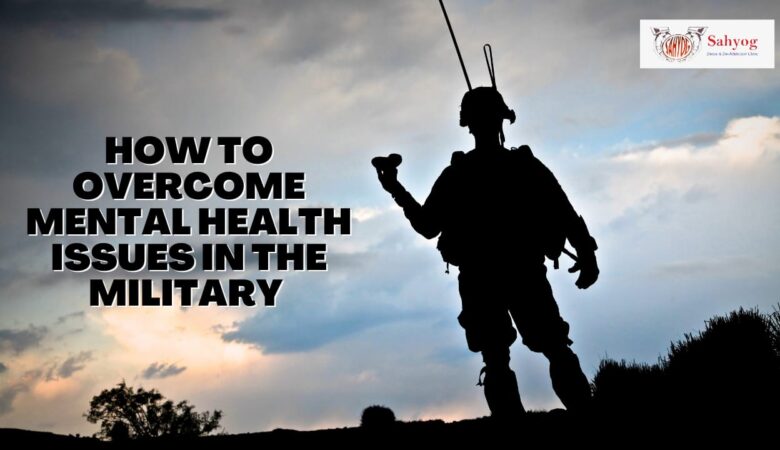How To Overcome Mental Health Issues In The Military
Introduction Mental health issues are becoming more and more prevalent in the military. It is estimated that one in five service members will experience a mental health problem at some point during their career. Several factors can contribute to mental health issues in the military, including exposure to combat, being away from family and friends, and experiencing trauma. While mental health issues can be difficult to overcome, there are many resources available to help service members cope. In this blog post, we will explore some of the ways that military members can overcome mental health issues. What are mental health issues? Mental health issues are a real and pressing concern for members of the military. In fact, according to a study by the Department of Veterans Affairs, 22 veteran suicides occur every day. That’s one suicide every 65 minutes. There are many reasons why mental health issues are so prevalent in the military. For one, service members are constantly under a tremendous amount of stress. They may be dealing with the aftermath of traumatic events, such as combat or sexual trauma. They may also be struggling to readjust to civilian life after deployment. In addition, service members often have difficulty accessing mental health services. This is due in part to the stigma that surrounds mental health issues in the military. Many service members feel like they need to tough it out and don’t want to seek help for fear of being seen as weak or unfit for duty. If you or someone you know is struggling with mental health issues, there is help available. Several resources are available for you that can provide support and assistance, including: The National Suicide Prevention Lifeline: 1-800-273-8255 The Department of Veterans Affairs Veterans Crisis Line: 1-800-273-8255 (press 1) Military OneSource: 1-800-342-9647 The Prevalence of Mental Health Issues in the Military It’s no secret that the military can be a tough environment. long hours, grueling work conditions, and constant stress can take a toll on even the strongest individuals. This is why it’s so important for service members to be aware of the signs of mental health issues and know how to get help if they need it. According to a report from the Department of Defense, 20% of active duty service members reported symptoms of a mental health condition in the past year. Of those, 6.5% were found to have a probable major depressive episode and 3.7% had PTSD. These numbers are higher than in the general population, where only 9.3% of adults reported having a mental health disorder in the past year. There are many reasons why mental health problems are more common in the military. For one, service members are more likely to experience traumatic events than civilians. They may witness violence or death, be involved in combat situations, or suffer a serious injury themselves. These experiences can lead to feelings of guilt, anxiety, and depression. In addition, service members often deal with long periods of separation from friends and family, which can be very isolating. They may also face difficult working conditions, such as long hours, dangerous conditions, and limited resources. All of these factors can contribute to feelings of stress, anxiety, and depression. If you are a service member struggling with mental health issues, know that you are not alone. Talk to your commander or unit chaplain about getting help from a mental health professional. You can also call the Military Crisis Line at 1-800-273-8255, or visit the Veterans Affairs website for more information on mental health resources for service members. The Causes of Mental Health Issues in the Military Mental health issues in the military are often caused by a combination of factors, including exposure to combat and other stressful situations, long periods of separation from family and friends, and the challenges of adapting to military life. Combat and other stressful experiences can lead to post-traumatic stress disorder (PTSD), anxiety, depression, and other mental health problems. Military service members may also be at risk for developing substance abuse disorders as a way of coping with their symptoms. Long periods of separation from loved ones can contribute to feelings of isolation and loneliness, which can trigger or worsen mental health problems. The challenges of adjusting to military life—such as living in close quarters, dealing with difficult work schedules, and managing the demands of military training—can also add to the stress that service members experience and increase their risk of developing mental health issues. The Consequences of Mental Health Issues in the Military Mental health issues can have a profound and negative impact on military members and their families. Studies have shown that mental health problems can lead to reduced job performance, absenteeism, and even suicide. In addition to the personal toll that mental health issues can take, they also exact a significant financial cost. The Department of Defense spends more than $2 billion each year on medical care for active-duty service members with mental health disorders. This does not include the cost of lost productivity or disability payments. Mental health issues are often caused by deployments, combat exposure, and other stressful events. They can also be the result of pre-existing conditions that are exacerbated by the demands of military life. Whatever their cause, mental health disorders can have a serious impact on those who suffer from them as well as on the people around them. It is important for military members and their families to be aware of the signs and symptoms of mental illness and to seek help from qualified professionals when necessary. Overcoming Mental Health Issues in the Military Mental health issues are common in the military. One in five service members will experience a mental health problem at some point during their career. There are several reasons why mental health problems are so common in the military. First, service members are exposed to traumatic events regularly. Second, they live in a high-stress environment where they are constantly on the alert and have to be ready for









